How much time could you save if AI handled your toughest academic challenges? Students constantly seek ways to boost their productivity and enhance their learning experience.
Over 70% agree that AI technologies help them understand the material better, and 67% say they study faster and more efficiently with AI assistance.
Artificial intelligence is reshaping education, offering students powerful new tools to enhance their learning. Yet, as AI rapidly evolves, many in academia remain cautious.
Concerns about academic integrity and the potential for AI-generated biases and inaccuracies abound.
Despite these worries, educators must recognize that AI is already part of student life.
As Houman Harouni, a lecturer at Harvard Graduate School of Education, points out, “You have to stop thinking that you can teach exactly the way you used to teach when the basic medium has changed.”
This article explores seven AI tools that can support students in writing, studying, and beyond.
Rather than viewing these as shortcuts, we’ll examine how each tool can foster critical thinking and spark imagination when used thoughtfully.
By engaging with AI, educators can guide responsible use and teach vital skills for navigating our AI-influenced world.
As we look into these tools, consider how they might challenge and expand your approach to learning and teaching.
Best AI Tools for Students in 2024
Today, a combined 60% of teachers and students use AI in their classrooms.
These AI-powered resources go beyond simple automation, offering personalized support, adaptive learning, and opportunities for critical engagement.
1. Best AI Tools for College Students – Grammarly
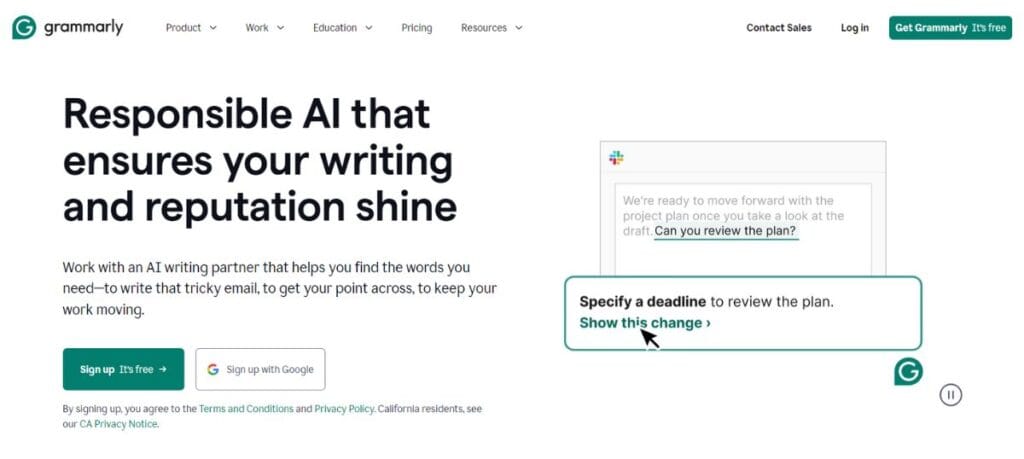
Grammarly has evolved into an indispensable writing assistant for college students.


Never Worry About AI Detecting Your Texts Again. Undetectable AI Can Help You:
- Make your AI assisted writing appear human-like.
- Bypass all major AI detection tools with just one click.
- Use AI safely and confidently in school and work.
It’s one of the best AI tools for academic purposes.
Its AI-powered algorithms go beyond simple spell-checking, offering comprehensive feedback on grammar, clarity, engagement, and delivery.
What sets Grammarly apart is its context-aware suggestions.
It considers the document type – be it an essay, research paper, or email – and tailors its recommendations accordingly.
The tool’s plagiarism checker is particularly valuable for academic writing, helping students maintain academic integrity.
Grammarly’s browser extension integrates seamlessly with most writing platforms, providing real-time feedback as students compose their work.
The premium version offers advanced features like vocabulary enhancement suggestions and genre-specific writing style checks.
However, it’s crucial for students to use Grammarly as a learning tool rather than a crutch.
The real learning begins when we question the framework being used.
Students should critically evaluate Grammarly’s suggestions, understanding the ‘why’ behind each recommendation to truly improve their writing skills.
2. Best AI Tools for Engineering Students – Wolfram Alpha
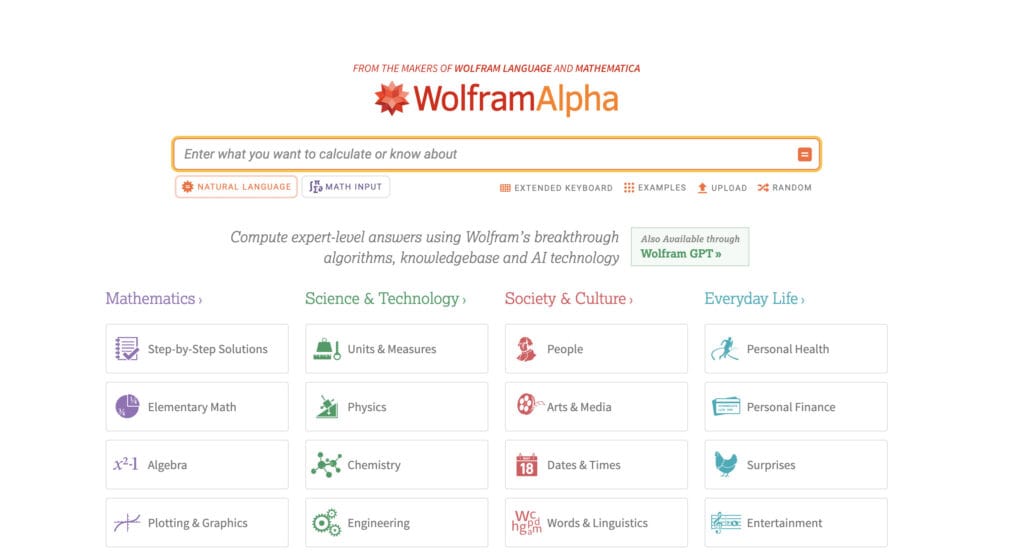
Wolfram Alpha is a computational knowledge engine that’s particularly useful for engineering students.
Unlike traditional search engines, it uses AI to understand queries and compute answers, making it an invaluable resource for complex calculations and data analysis.
The tool excels in mathematics, physics, chemistry, and even specialized fields like materials science.
It can solve equations, visualize functions, and provide step-by-step solutions to help students grasp difficult concepts.
Wolfram Alpha’s ability to handle units and conversions seamlessly is a boon for engineering calculations.
Its vast database of physical constants and properties of materials saves time and reduces errors in problem-solving.
Wolfram Alpha is most effective when used alongside traditional learning methods, encouraging students to verify results and understand the underlying principles.
As Dora Demszky, assistant professor of education data science (Stanford), pointed out, AI doesn’t replace critical thinking—it raises the bar.
By editing and curating AI-generated results, students engage more deeply with the material.
It allows them to become architects of more creative and ambitious projects, rather than relying on AI to do the work for them.
3. Best AI for Writing Essays – Undetectable AI Essay Writer
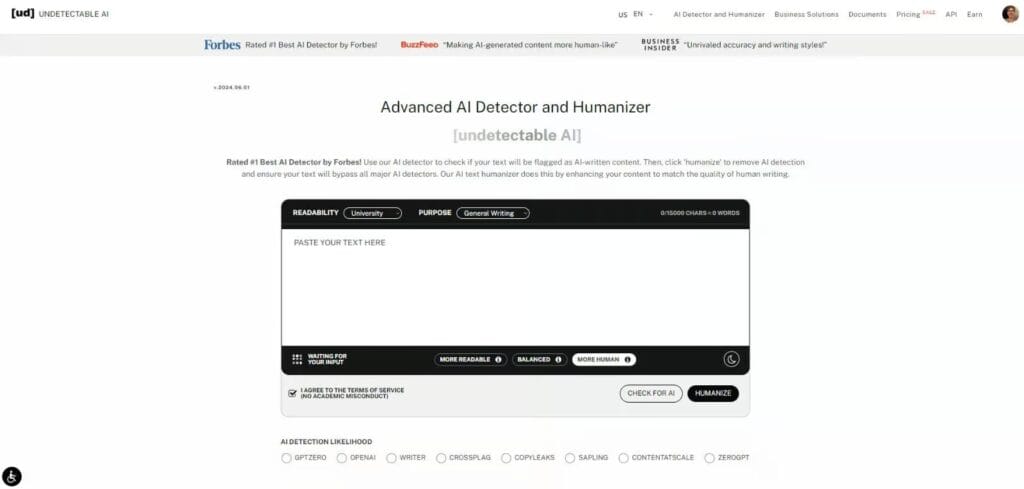
Undetectable AI Essay Writer represents an innovative advancement in AI writing assistance, offering students a powerful tool to enhance their essay writing skills.
This sophisticated platform uses advanced language models to generate original content, adapting to various writing styles and academic levels.
The tool provides students with diverse perspectives and structural frameworks for their essays.
By generating comprehensive outlines and offering alternative viewpoints, Undetectable AI serves as an invaluable brainstorming aid.
Students can use these AI-generated ideas as a springboard for their own critical thinking and analysis, developing more nuanced and well-rounded arguments.
Educators can leverage this tool to teach students about the essay writing process, source evaluation, and the importance of developing a unique voice.
By comparing AI-generated content with their own work, students can gain insights into effective writing techniques and styles.
When used responsibly, Undetectable AI becomes a learning companion rather than a shortcut.
It challenges students to elevate their writing, encouraging them to critically evaluate and expand upon the generated content.
Undetectable AI Essay Writer offers an opportunity to deepen students’ understanding of academic writing, fostering creativity and critical thinking skills essential for success in the digital age.
You can try the Undetectable AI widget now and make your essays more engaging with just a click! Perfect for those looking for the best AI for writing essays.
4. Best AI Websites for Students – TutorAI
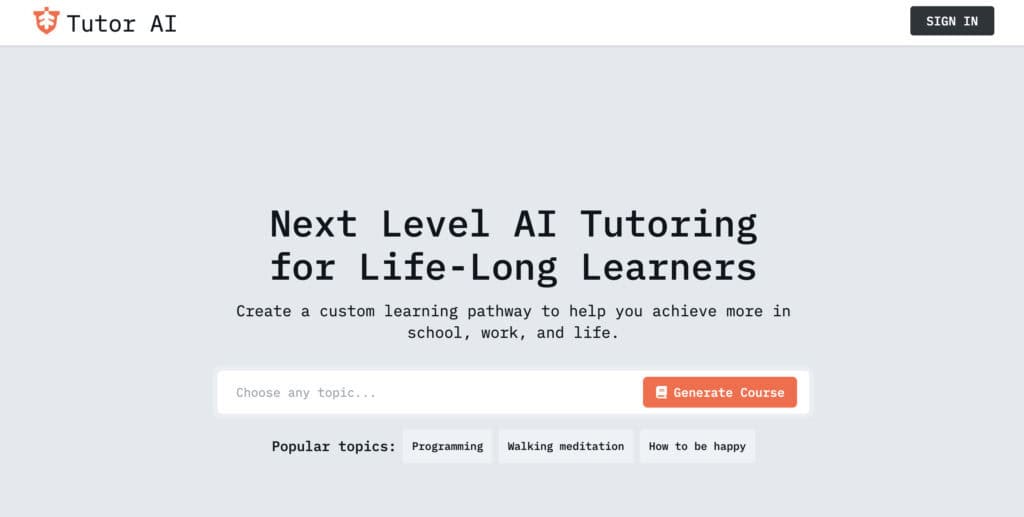
TutorAI exemplifies the potential of AI in personalized learning.
This platform uses machine learning algorithms to create customized study plans and provide on-demand tutoring across various subjects.
What sets TutorAI apart is its adaptive learning system.
It assesses a student’s knowledge gaps and learning style and then tailors its approach accordingly.
The platform offers interactive lessons, quizzes, and real-time feedback, mimicking a one-on-one tutoring experience.
One of TutorAI’s strengths is its ability to break down complex topics into manageable chunks, aligning with cognitive load theory in education.
It can generate practice questions at varying difficulty levels, helping students gradually build their understanding and confidence.
To make the most of TutorAI, try integrating it into your daily study routine.
After each class, use it to review key concepts and practice problem areas.
Set aside time to tackle quizzes or exercises that target subjects you struggle with, ensuring you’re reinforcing classroom learning rather than replacing it.
Educators can leverage TutorAI to gain insights into students’ learning patterns and struggles, informing their teaching strategies.
By encouraging students to reflect on their interactions with TutorAI, teachers can foster metacognitive skills crucial for lifelong learning.
5. Best AI Tools for Study Planning – Cramfighter
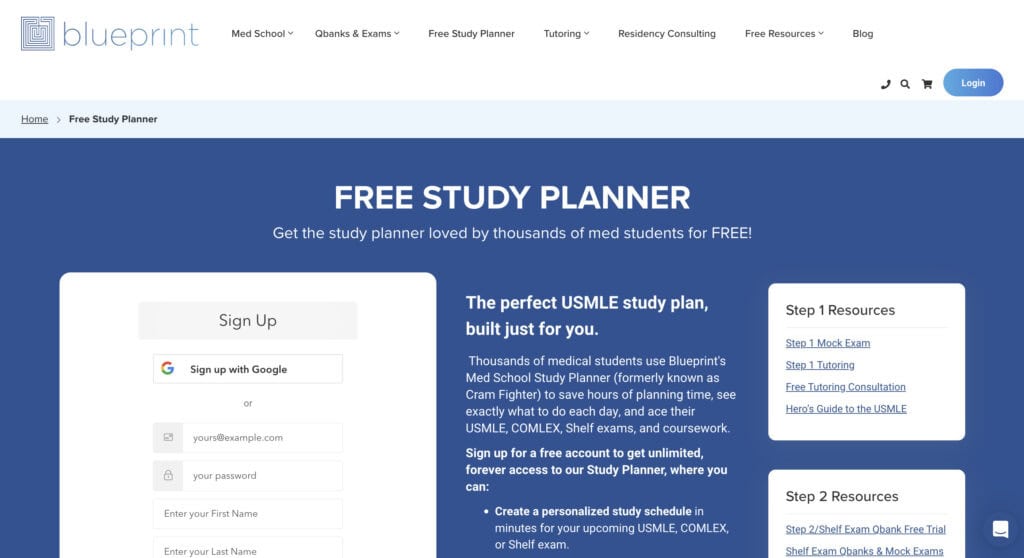
Cramfighter harnesses AI to revolutionize study planning, which is particularly beneficial for students preparing for standardized tests or managing multiple courses.
This tool goes beyond simple scheduling by using algorithms to optimize study plans based on individual learning patterns and course requirements.
What makes Cramfighter stand out is its adaptive nature. It analyzes a student’s progress, adjusting the study schedule in real-time to ensure efficient use of study time.
The tool breaks down large topics into manageable daily tasks, helping prevent procrastination and overwhelming feelings. It helps you get more done in a short amount of time.
Cramfighter’s AI also considers factors like topic difficulty and the student’s strengths and weaknesses when creating schedules.
This personalized approach aligns with Harouni’s emphasis on tailoring education to individual needs.
However, students should be encouraged to critically evaluate and adjust Cramfighter’s suggestions. The tool should serve as a guide, not a rigid taskmaster.
6. Best AI for Transcription – Scribe
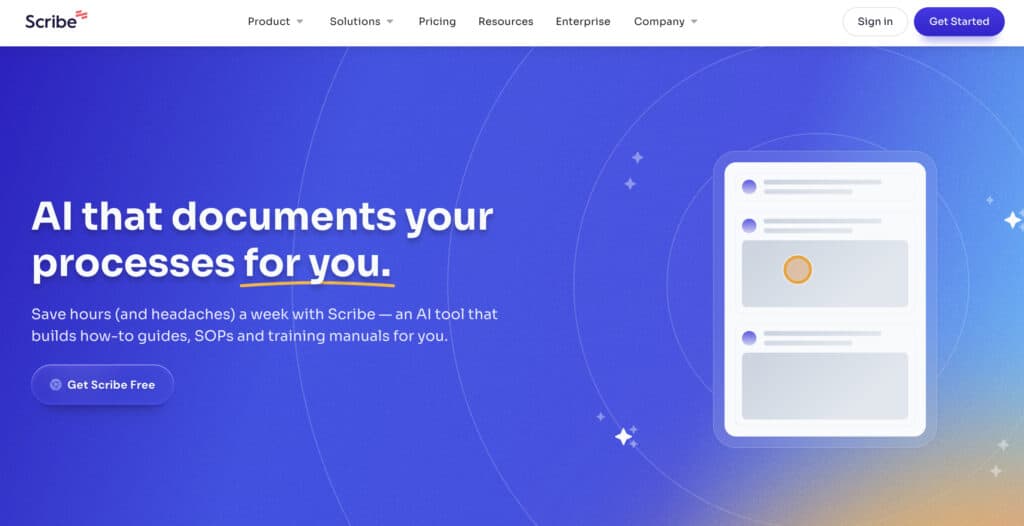
Scribe represents a significant advancement in AI-powered transcription tools, particularly valuable for students struggling with note-taking or auditory processing difficulties.
It uses advanced speech recognition algorithms to accurately convert audio into text.
What sets Scribe apart is its ability to distinguish between multiple speakers and capture context-specific terminology, making it especially useful for transcribing lectures or group discussions.
The AI can also generate summaries and highlight key points, aiding review and comprehension.
Try using it to capture your lectures or meetings, but don’t stop there.
After each session, go through the transcription and highlight key points or connections, adding your own notes to reinforce understanding.
This way, you’re not just passively relying on the tool—you’re actively engaging with the material.
7. Best AI for Academic Research – ResearchRabbit
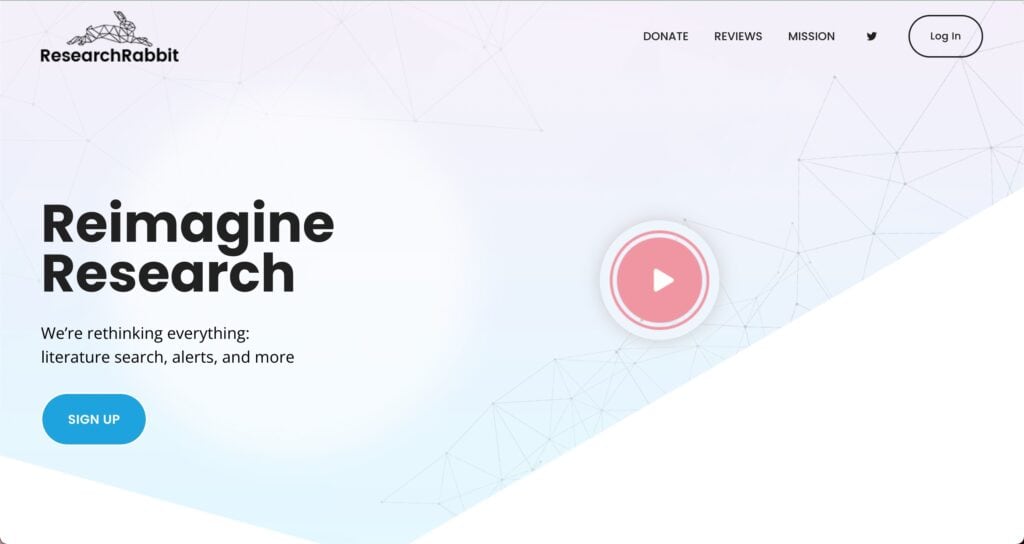
ResearchRabbit exemplifies the potential of AI in streamlining academic research.
This tool uses machine learning algorithms to analyze research papers, identify connections between studies, and suggest relevant articles based on the user’s interests.
What makes ResearchRabbit unique is its ability to visualize research landscapes, helping students understand how different papers and concepts relate to each other.
It can track new publications in specific fields, keeping users up-to-date with the latest developments.
When using ResearchRabbit, consider it a starting point to spark your creativity, not a final answer.
After receiving AI-generated suggestions, take the time to question them, explore related ideas, and follow unexpected connections to broaden your perspective.
For educators, incorporate ResearchRabbit into research assignments by encouraging students to critically assess the tool’s suggestions.
Ask them to compare AI-sourced articles with traditional sources, helping them sharpen their critical thinking skills.
Engage students in discussions about the tool’s limitations and strengths to deepen their understanding of how technology can support—rather than dictate—the research process.
Bonus: Best for Humanizing AI-Generated Content – Undetectable AI
Undetectable AI offers a unique solution for students looking to refine AI-generated content.
While it’s crucial to maintain academic integrity, this tool can be valuable for learning how to improve writing style and structure.
What sets Undetectable AI apart is its ability to analyze and enhance text, making it more natural and human-like.
It uses advanced language models to adjust tone, vocabulary, and sentence structure, helping students understand the nuances of effective writing.
However, it’s essential to use this tool responsibly. Undetectable AI should be viewed as a learning aid, not a shortcut to bypass AI detection.
Students can use it to compare different writing styles, understand what makes text sound more natural, and refine their own writing skills.
Conclusion
AI for students is here to stay. Even UNESCO supports Member States harnessing the potential of AI to achieve the Education 2030 Agenda while ensuring its application follows the core principles of inclusion and equity.
As we’ve explored these AI tools, it’s clear that technology is reshaping education in profound ways. From writing assistance to research aids, AI offers powerful support for students across disciplines.
The key to leveraging AI in education is to use it as a springboard for critical thinking and creativity.
Tools like Undetectable AI, when used responsibly, can help students understand the nuances of effective communication and develop their unique voice.
As we move forward, it’s crucial for educators and students alike to engage with AI tools critically and ethically.
By doing so, we can harness their potential to enhance learning, foster innovation, and prepare for a future where human creativity and artificial intelligence work in tandem.
